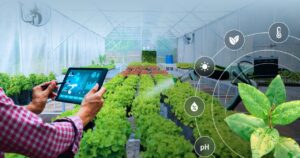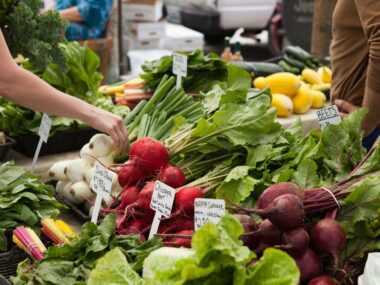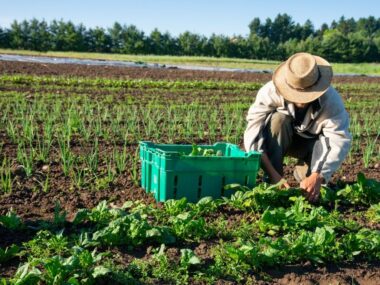Precision agriculture is transforming the way farmers manage their crops and maximize yields. By leveraging cutting-edge technologies, farmers can make data-driven decisions that optimize resource use, enhance productivity, and minimize environmental impact. In this article, we’ll explore the various emerging technologies that are reshaping the landscape of modern agriculture.
Introduction to Precision Agriculture
Precision agriculture, also known as precision farming or satellite farming, involves the use of technology to fine-tune agricultural practices based on data-driven insights. This approach enables farmers to tailor their interventions at a precise level, optimizing inputs such as water, fertilizers, and pesticides while minimizing waste.

Key Technologies Driving Precision Agriculture
- Global Positioning Systems (GPS): GPS technology allows farmers to precisely locate and track equipment and activities within the field. This data is crucial for creating accurate maps, guiding machinery, and monitoring crop health.
- Remote Sensing: Remote sensing techniques, including satellite imagery and drones, provide real-time data on crop health, soil conditions, and water usage. This information helps farmers detect issues early and take proactive measures.
- IoT Sensors: Internet of Things (IoT) sensors embedded in fields collect data on temperature, moisture levels, and nutrient content. This data is transmitted wirelessly to farmers, enabling timely interventions and informed decision-making.
- Machine Learning and AI: Advanced algorithms analyze large datasets to identify patterns and predict outcomes. Machine learning models can optimize planting schedules, predict pest outbreaks, and recommend tailored treatments.
- Robotics and Automation: Robotics are increasingly used for planting, weeding, and harvesting crops. Autonomous vehicles equipped with AI can navigate fields and perform tasks with precision, reducing labor costs and improving efficiency.
- Variable Rate Technology (VRT): VRT enables farmers to apply inputs (e.g., fertilizers, irrigation) at variable rates based on spatial variability within fields. This optimizes resource use and minimizes over-application.
- Blockchain: Blockchain technology enhances transparency and traceability in agriculture by securely recording transactions and supply chain data. This fosters trust among consumers and facilitates fairer market practices.
Benefits of Precision Agriculture
- Increased Efficiency: Precision agriculture optimizes resource allocation, reducing waste and improving overall efficiency.
- Higher Yields: By addressing issues promptly and tailoring interventions, farmers can achieve higher yields and better-quality produce.
- Cost Savings: Precision agriculture reduces input costs such as fertilizers and pesticides while minimizing labor requirements.
- Environmental Sustainability: By minimizing chemical use and optimizing water usage, precision agriculture promotes sustainability and reduces environmental impact.
Challenges and Future Outlook
While precision agriculture offers numerous benefits, there are challenges to widespread adoption, including initial investment costs, data management complexities, and the need for specialized skills. However, as technologies mature and become more accessible, the future of precision agriculture looks promising.
Case Studies and Success Stories
- John Deere: The agriculture machinery giant offers a range of precision farming solutions, including GPS-guided tractors and integrated data platforms.
- The Climate Corporation: This company uses data science and AI to provide insights that optimize farm management decisions.
- Vertical Farming Ventures: Urban agriculture startups are combining precision techniques with controlled environments to produce food efficiently in urban areas.
Conclusion
Precision agriculture is revolutionizing farming practices worldwide, offering farmers unprecedented control over their operations and paving the way for a more sustainable future. As technologies continue to evolve and become more accessible, the agriculture industry is poised to benefit from increased productivity, reduced environmental impact, and enhanced profitability. Embracing precision agriculture is not just a trend but a necessity for meeting the growing global demand for food while preserving natural resources for future generations.










